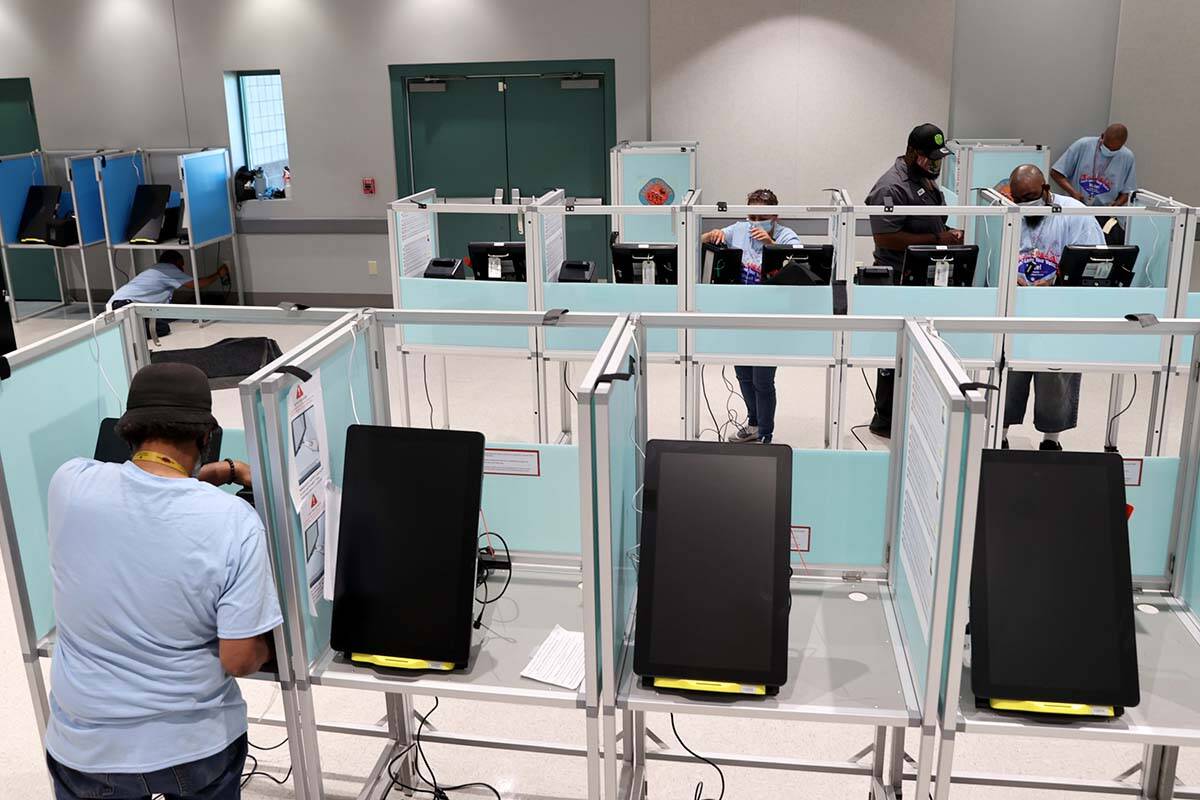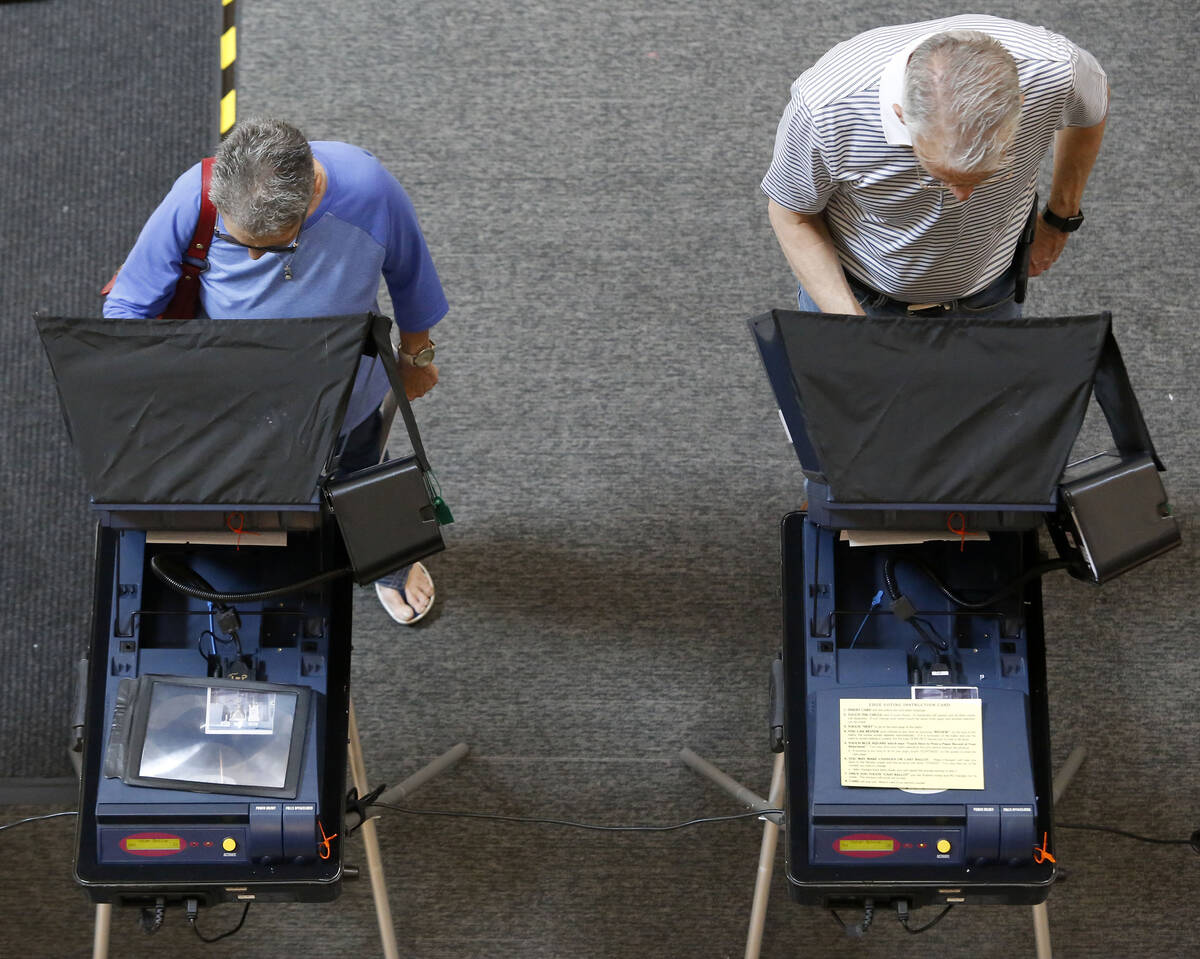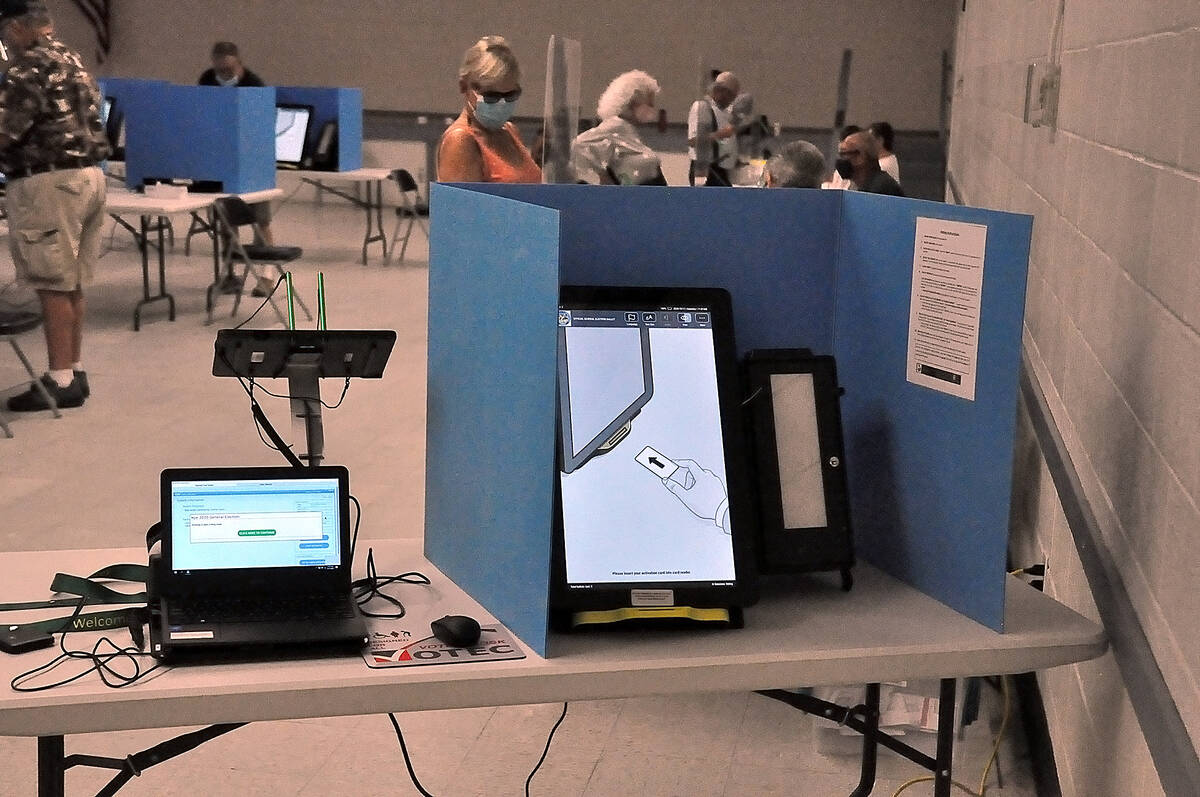COMMENTARY: Don’t be fooled by Question 3’s misleading commercials
Why are out-of-state billionaires trying to change election rules in Nevada? It’s a key question for voters considering Question 3, which would drastically alter primary and general elections.
Another question is why backers are so desperate not to talk about their most significant change — something called “ranked-choice voting.”
The truth is that the Question 3 campaign is misleading voters about the current system and the radical nature of the changes they would make to the Nevada constitution.
Right now, every Nevada voter has a right to vote in primary and general elections, with two basic limits. One is that you can only vote in elections where you live. That’s true even though elected officials from other parts of the state can make policies that affect you.
The other is that when a primary election chooses a political party’s nominee, only members of that party vote. Anyone who identifies as a Democrat can vote on the Democratic Party’s nominees, and the same goes for Republicans.
This makes sense. Why would Democrats have a say in choosing Republican nominees or vice versa? Any independent voter interested in who a party will nominate can simply register with that party and vote in their primary. It’s an easy process.
Question 3 ads claim Nevadans are “denied the right to vote” because Democrats choose Democrat nominees and Republicans choose Republican nominees. But that’s like saying people are “denied the right to vote” for candidates in a city or county they don’t live in. Technically it’s true, but it’s also perfectly reasonable.
There are other problems with Question 3’s primary process, which would advance five candidates to the general election. This can have absurd results, like candidates from just one party advancing to the general election. For example, in a primary with five Republicans running against 10 Democrats, the Republican candidates could take all top five spots even in a Democrat-leaning district.
What about the general election — the one that really matters? The Question 3 campaign doesn’t want to talk about it because their measure would implement ranked-choice voting (RCV), a convoluted process banned in ten states.
Instead of just voting for a candidate, RCV asks voters to rank them all. Fail to do that, or do it incorrectly, and your ballot might not count.
Filling out an RCV ballot takes more time, which means longer lines to vote. Based on an MIT study, Question 3 would have added eight minutes per voter in the last general election. That’s in addition to the time it takes voting on other things, like ballot measures. RCV also requires a lot more information. Ask yourself: Who would be your third choice for State Assembly? Your fourth choice for State Senate? Your fifth choice for U.S. Congress?
Question 3 would make it much harder to prove whether an election is accurate and fair. One California county discovered, weeks after certifying an RCV election, that a computer programming error had thrown off the numbers. The loser was actually the winner, a debacle due entirely to RCV.
No other state uses the system proposed by Question 3. Maine has RCV, but with normal primary elections. Alaska is the most similar, but only sends the top four candidates to the general. And voters there, after one election cycle, may repeal it in November.
Trying RCV only to get rid of it has become common. A dozen cities in Utah dropped out early from an RCV pilot program after it confused voters, cost more money, and reduced trust in elections. Ballotpedia keeps a running list of places that have tried, then rejected RCV.
Perhaps this explains why Question 3 backers want to sneak RCV into the Nevada Constitution, where it would be difficult to repeal. It might also explain why those backers aren’t doing it in their own states. Nearly all the money for Question 3 comes from out of state — from billionaires in places like New York, Texas and California.
Nevada voters have an opportunity to reject those billionaires, and their convoluted election scheme, by voting “no” on Question 3 in November.
Trent England is a coauthor of The Case Against Ranked-Choice Voting and one of the founders of the Stop RCV Coalition.
























